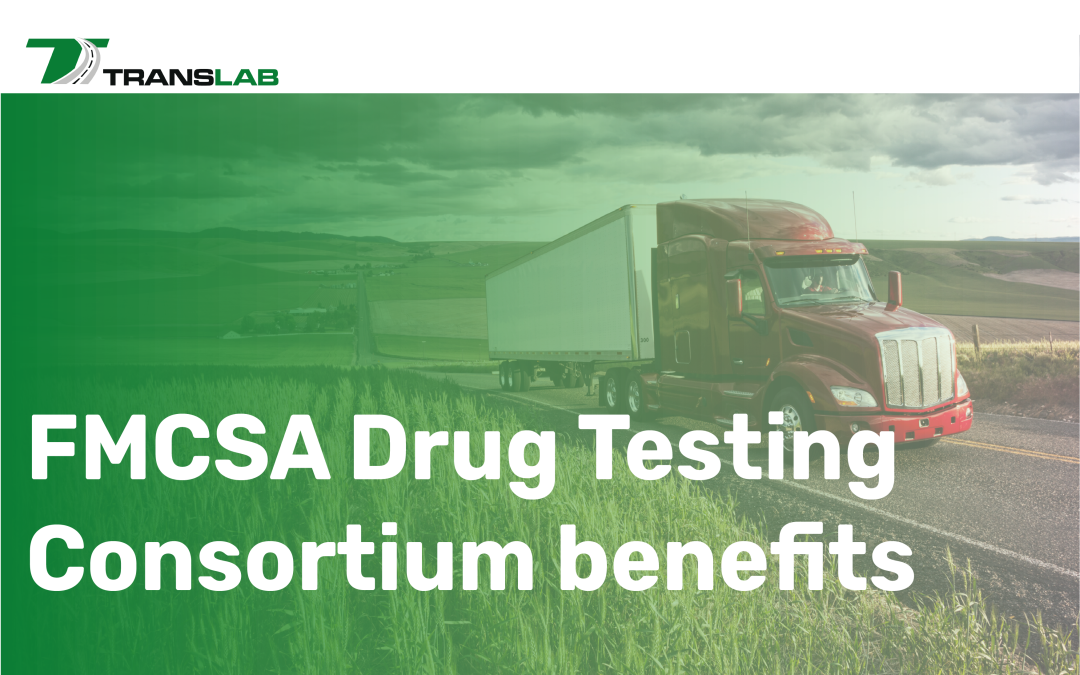Small businesses can find it daunting to adhere to strict Federal Motor Carrier Safety Administration (FMCSA) regulations. One effective way to manage these responsibilities is to join an FMCSA drug testing consortium. This membership offers numerous benefits, significantly enhancing small businesses’ operational efficiency and compliance.
Streamlined Compliance
The FMCSA mandates regular drug and alcohol testing for drivers operating commercial vehicles. Small businesses often need more resources and expertise to manage these requirements independently. By joining a consortium, businesses can offload the administrative burden of scheduling, conducting, and documenting drug tests. Consortiums are experienced in navigating FMCSA regulations and ensuring that all testing procedures comply with federal guidelines. This simplifies compliance and reduces the risk of costly fines and penalties resulting from non-compliance.
Cost Efficiency
Managing an in-house drug testing program for small businesses can be financially taxing. The costs associated with setting up testing facilities, hiring qualified personnel, and maintaining records can quickly add up. FMCSA drug testing consortiums offer a cost-effective alternative by pooling resources from multiple businesses. This collective approach allows consortium members to share the costs of testing services, making it significantly more affordable than managing the process independently. Consortiums often have established relationships with testing laboratories, enabling them to negotiate better rates for their members.
Enhanced Safety
Safety is a critical concern in the trucking industry, and drug testing is vital in ensuring that drivers are fit to operate commercial vehicles. Small businesses can contribute to a safer work environment by joining a consortium. Consortiums conduct random, pre-employment, post-accident, and reasonable suspicion testing, ensuring that drivers are consistently monitored for substance abuse. This proactive approach helps identify and address potential safety risks before they result in accidents, protecting drivers and the public.
Administrative Support
Managing a drug testing program involves extensive record-keeping and reporting. Consortiums provide valuable administrative support to small businesses by handling all documentation related to drug tests. This includes maintaining accurate records, managing test results, and preparing necessary reports for FMCSA audits. With this support, small business owners can focus on core operations without worrying about the complexities of drug testing administration.
Expert Guidance
Navigating FMCSA regulations can be challenging for small businesses without dedicated compliance experts. Consortiums offer access to knowledgeable professionals who stay updated on the latest regulatory changes and best practices. These experts can guide you in maintaining compliance, developing drug testing policies, and addressing any issues that arise during the testing process. This expertise is invaluable for small businesses needing more resources to hire in-house compliance specialists.
Reduced Liability
Non-compliance with FMCSA drug testing regulations can lead to significant legal and financial liabilities. Joining a consortium helps mitigate these risks by ensuring all testing procedures follow federal guidelines. Consortiums also offer support in an audit or legal dispute, providing the necessary documentation and expert testimony to defend against claims of non-compliance. This added layer of protection can be crucial for small businesses striving to maintain their reputation and avoid costly litigation.
For small businesses in the trucking industry, joining an FMCSA drug testing consortium is a strategic decision that offers numerous benefits. From streamlined compliance and cost efficiency to enhanced safety and administrative support, consortium membership provides a comprehensive solution to the challenges of managing a drug testing program. By leveraging the expertise and resources of a consortium, small businesses can ensure regulatory compliance, protect their drivers, and contribute to a safer transportation industry.


